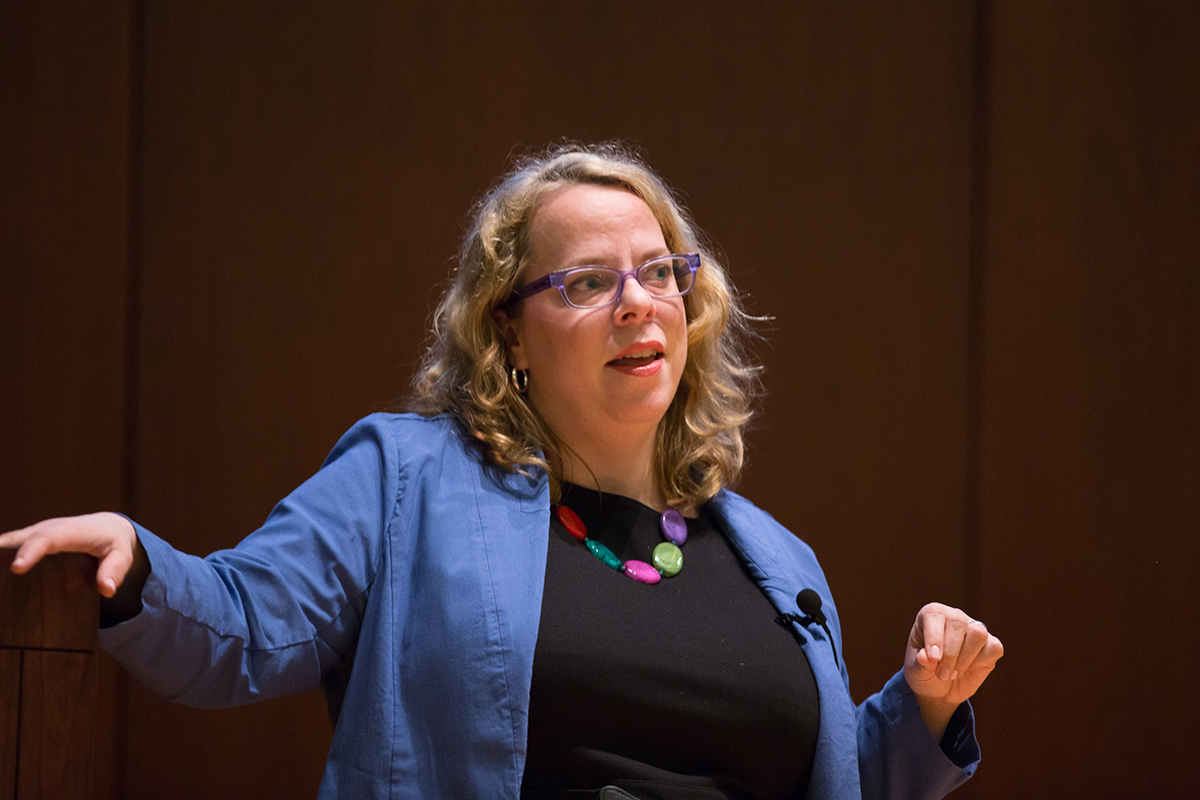Activist addresses sexual assault, rape culture
By Giorgi Tsintsadze

According to recent studies, one in every five college women in the United States has been a victim of sexual assault.
This and other alarming statistics have spurred a powerful national discussion around the issue. Kate Harding is a writer who is trying to comprehend and confront the crisis. Her 2015 book “Asking For It: The Alarming Rise of Rape Culture – and What We Can Do About It,” tells the story of her quest to identify what makes the problem of sexual assault so common and persistent. On April 11, Harding came to Cornell to share what she has learned.
Harding’s keynote address in Call Auditorium kicked-off Sexual Assault Awareness Week at Cornell, which coincides with national Sexual Assault Awareness Month. She began by recounting her personal experience dealing with sexual assault and went on to outline the main argument of “Asking For It.”
At the core of the problem, she argued, is “rape culture,” which she described as a collection of harmful myths that lay blame on the victims of sexual assault. These help set up a biased social atmosphere that “supports the needs of the rapists more than the needs of victims.” As her book title suggests, the central myth Harding identifies is that “somehow victims ask for it.” Harding stressed the importance of addressing the common misconception that “only certain kinds of women can be raped.”
She said research proves sexual assault is a problem across the board. Ethnic and racial minorities who are often underrepresented in these discussions are among the most vulnerable. Sexual assault is also a major problem among LGBTQ individuals. Finally, about 10 percent of sexual assault cases involved male victims and that too should be given attention, Harding said.
According to Harding’s analysis, the myth of miscommunication is another integral part of the problem. Research shows that people are very good at identifying when consent is present and when it is not – verbally and non verbally – and counter to the excuse of confusion or miscommunication, sexual assault is a willful disregard of an individual’s desires and boundaries. Pop culture and other influential drivers of modern life have created distorting narratives like that of “retroactive consent,” the harmful idea that consent can follow sexual intercourse rather than precede it.
Harding presented suggestions on how to confront the rape culture.
“We must fight myth with facts,” she said, noting that promoting awareness of sexual assault does not mean promoting abstinence. She said the inability for our society to communicate openly and effectively on these matters results in excessive and unjustifiable fears on the one hand and a breakdown of constructive interactions on the other.
See the full schedule of Annual Sexual Assault Awareness Week events.
Giorgi Tsintsadze ’17 is a writer intern for the Cornell Chronicle.
Media Contact
Get Cornell news delivered right to your inbox.
Subscribe